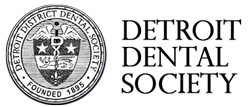We all know that a healthy smile requires decay-free teeth and healthy gums, but how often do we appreciate our jaw bone? Our teeth need a strong firm foundation to remain healthy and beautiful. This post from Allen Park Dental Care looks at bone recession.
Occasionally, a patient experiences bone recession in their jaw which can cause tooth loss and other problems. However, it is ordinarily the other way around. The bone loss occurs as a result of a lost tooth because the blood supply and stimulus needed for maintaining healthy bone is taken away.
Let’s look at the most common causes of jaw bone recession:
Extracted Teeth
Bone is living tissue and needs stimulation to stay healthy and retain its size and density. Biting, chewing, talking and all the other normal mouth functions keep the portion of the bone surrounding the tooth root healthy. When a tooth is extracted, the bone that used to anchor the tooth root recedes as if it understands that it is no longer needed. A dental implant provides stimulation similar to the natural tooth and can avoid bone recession.
Gum Infection
A gum infection can result when gum inflammation goes untreated and progresses to periodontitis. With periodontitis, the gums pull away from the teeth creating pockets which provide the perfect breeding ground for the harmful infection.
Gum infections can progress undetected, though there are usually warning signs. Swollen, painful gums, loose teeth, and gums that bleed when brushed are symptoms of periodontitis. The infection dissolves bone as the gums pull away from the tooth. Inadequate oral hygiene increases the risk of gum disease but other factors can compromise gum health. These include smoking (no surprise here), hormone levels, diseases that lower immune system effectiveness, medications that cause dry mouth, and genetic predisposition.
Abscessed Tooth
An abscess is a pus-filled pocket of infection that occurs in the nerve and roots of a tooth. As the infection attacks the tooth and bone tissue it creates a space that fills with pus. There are several treatments for a tooth abscess including antibiotics to kill the infection, a root canal, or extraction, if needed.
If you would like to replace a missing tooth with an implant, but don’t have enough bone at the implant site, you might be a candidate for bone grafting. Bone grafting may sound like major oral surgery but it is really a routine procedure performed in a dental office.
At Allen Park Dental Care, we provide single and multiple dental implants, and a full range of family dentistry services. Call us to schedule an appointment today.
Contact Szalai & Szalai DDS – Allen Park Dental Care:
313-928-2323
Location (Tap to open in Google Maps):
5329 Allen Rd
Allen Park, Michigan
48101









